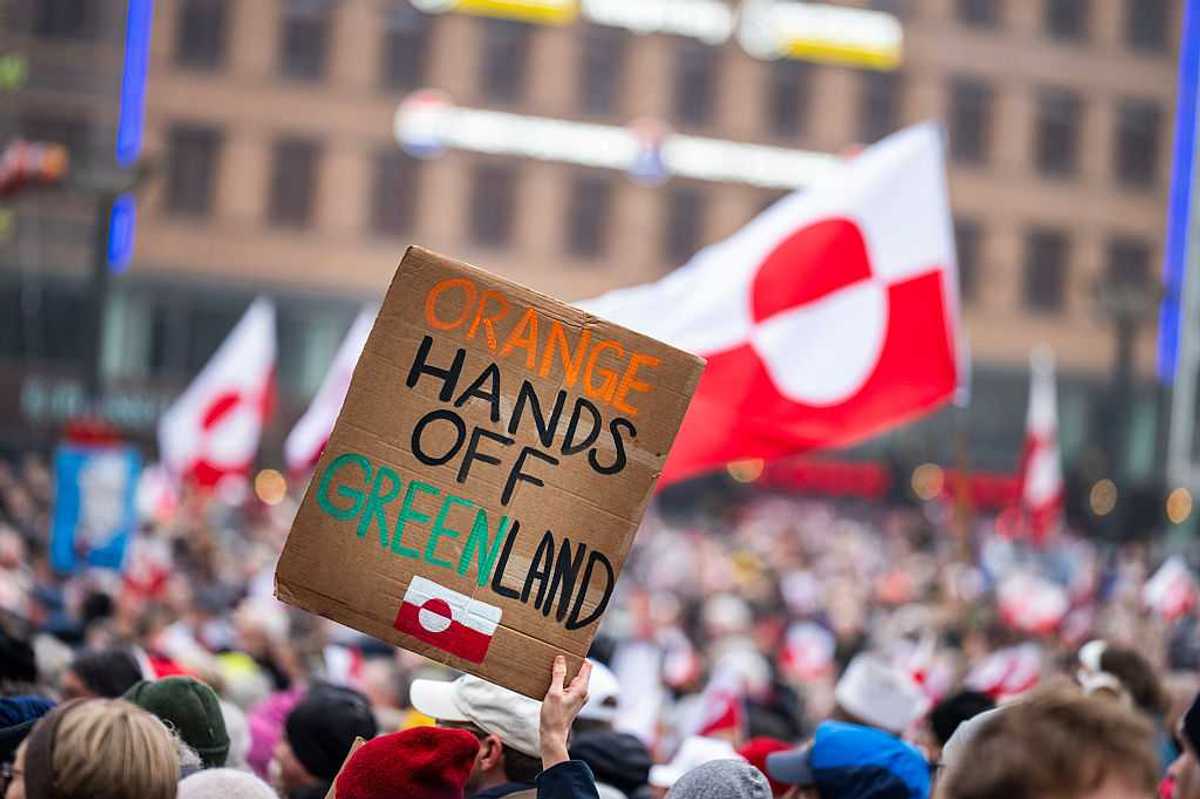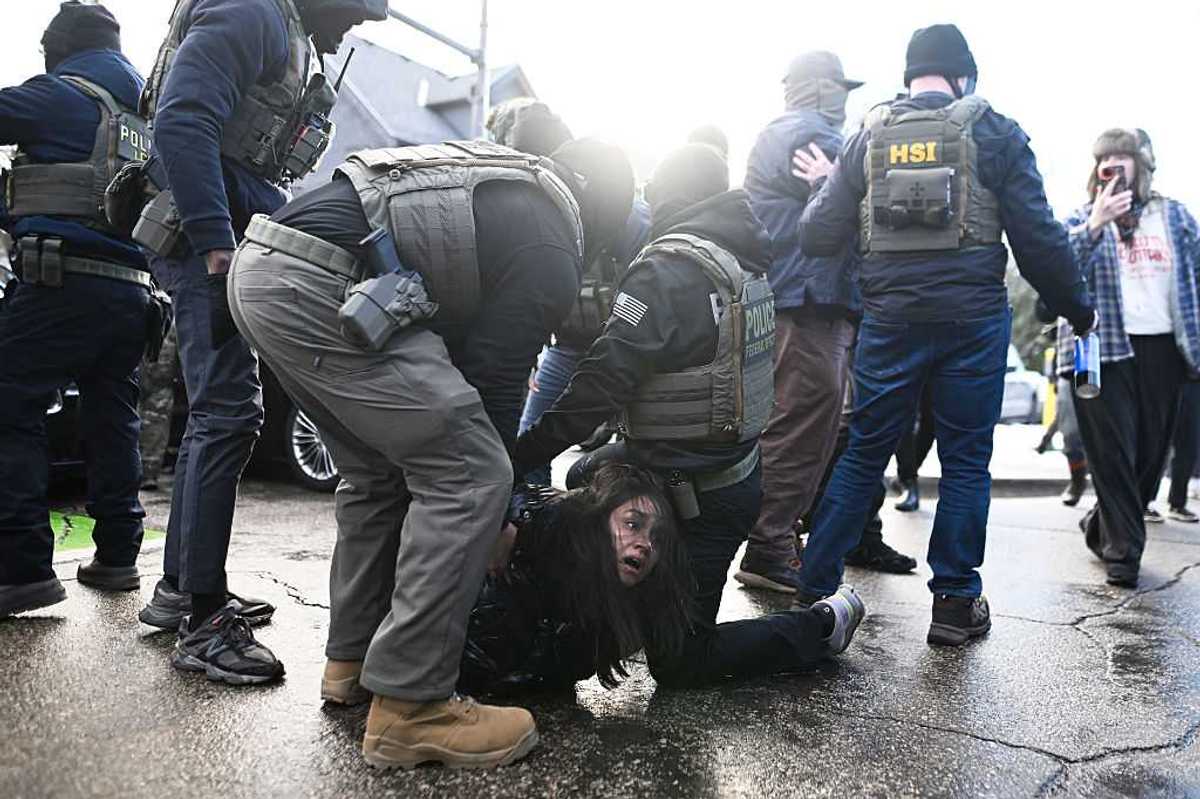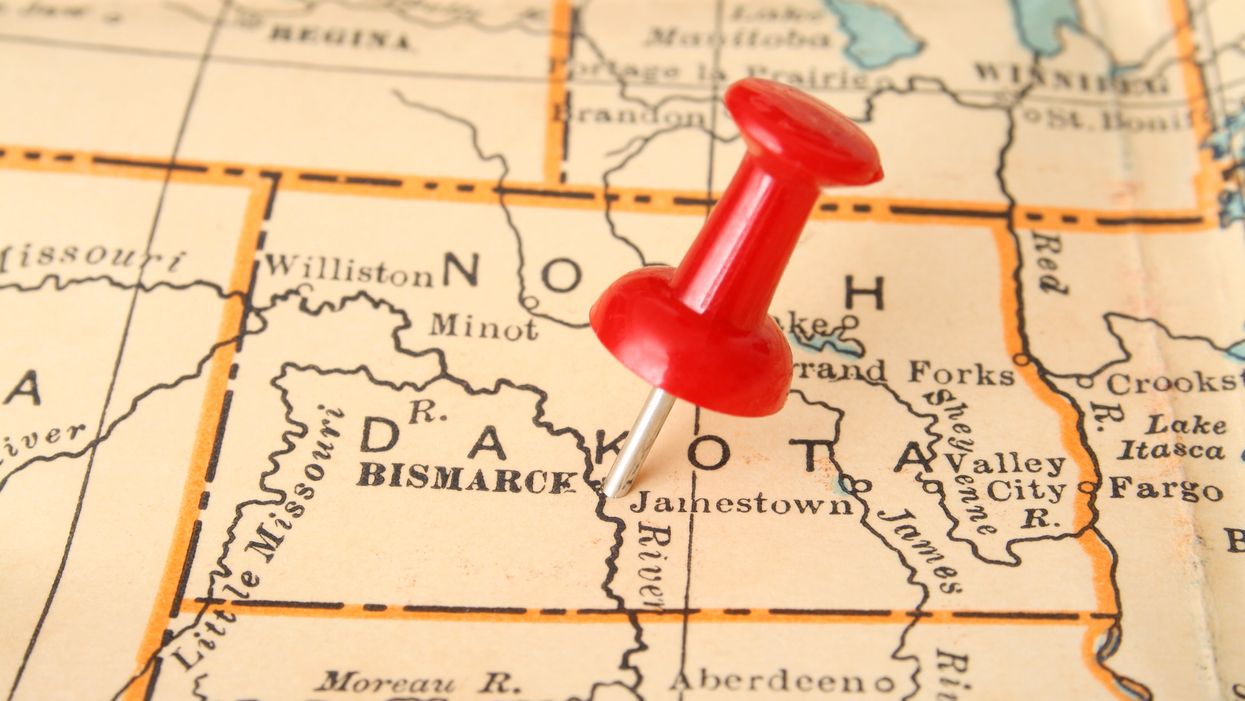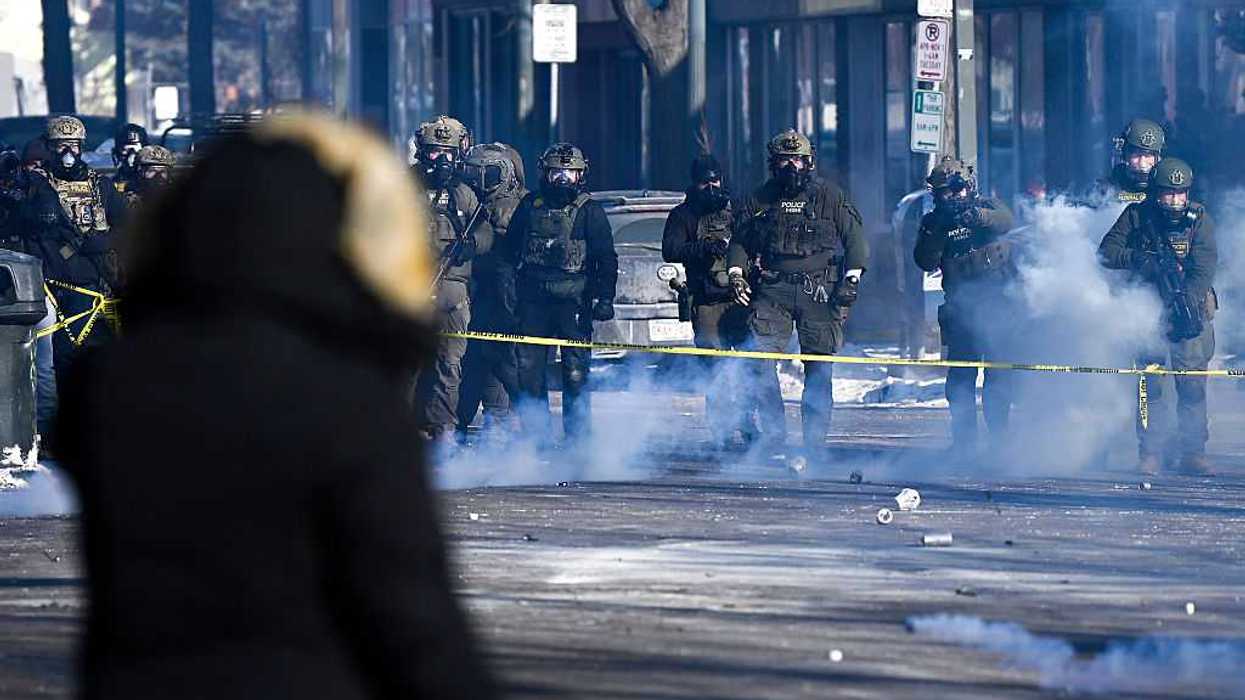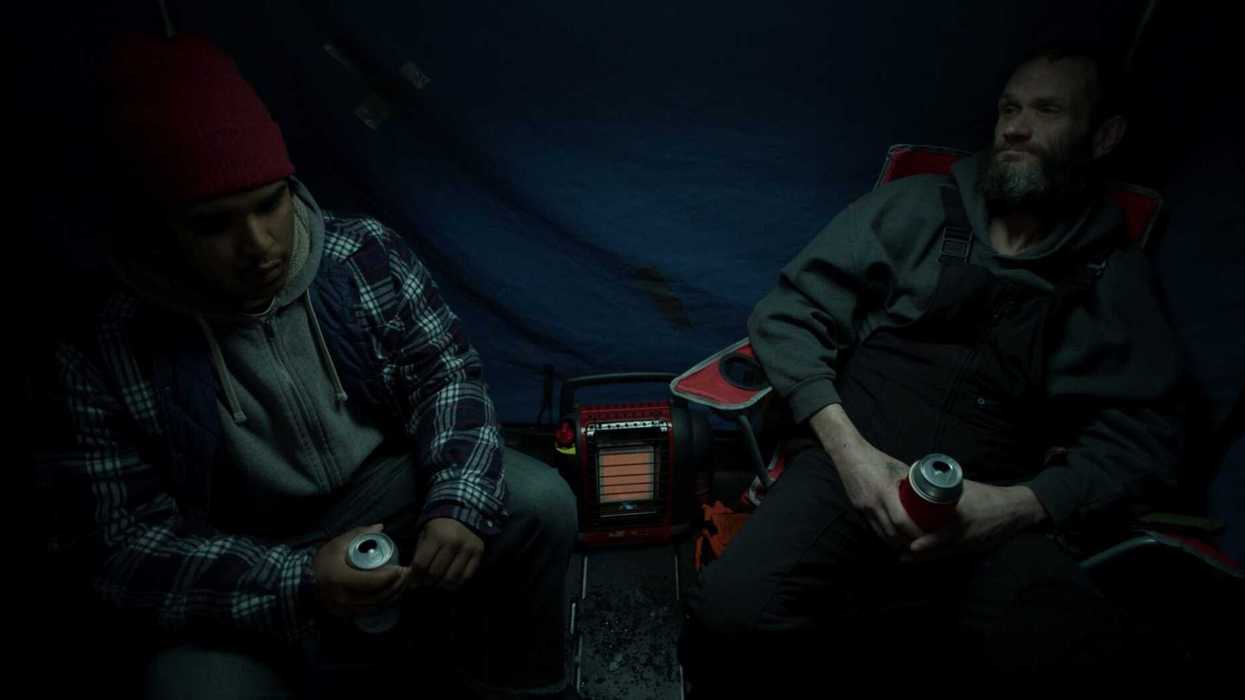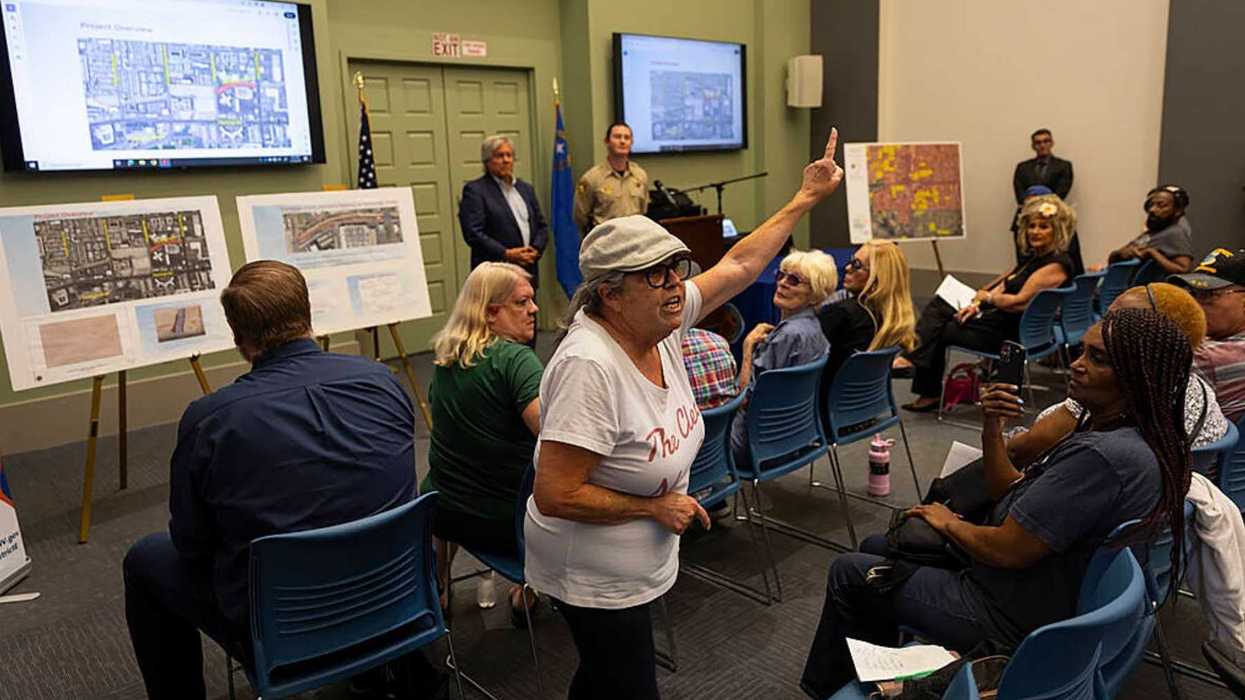A sweeping election reform measure has been removed from the November ballot following a North Dakota Supreme Court ruling Tuesday.
The measure would have established an independent redistricting commission as well as other changes to the election process, if approved by voters. But the high court agreed with a lawsuit that claimed voters had been misled during the signature gathering process.
This year's general election is the last opportunity for some states to approve redistricting reforms before election maps are redrawn next year. The court's decision means North Dakota's legislative districts will remain subject to partisan gerrymandering for another decade. (The state's sole seat in the U.S. House isn't subject to remapping.)
Soon after North Dakota Voters First's reform initiative was approved for the ballot earlier this month, the conservative Brighter Future Alliance sued GOP Secretary of State Al Jaeger to remove it. The suit claimed petition canvassers failed to provide a full text of the measure when collecting signatures. Nearly 100 Republican state lawmakers — the party dominates both chambers — also filed a legal brief in opposition to the ballot measure.
In a 5-0 ruling, the justices ordered the measure be removed, saying "the petition does not comply with the constitutional requirement that it contain the full text of the measure." Jaeger said he intends to follow the court's instruction.
The measure would have put the state's nonpartisan ethics commission in charge of the redistricting process for the Legislature. It also would have established a top-four open primary system and ranked-choice voting.
"All North Dakotans should be alarmed at how an entire political establishment came together, used all the levers of power and government, marshaled the special interests together, and denied the voters the right to make a simple choice about how our elections should be governed," said Carol Sawicki, chairwoman of North Dakota Voters First.
With North Dakota's efforts dashed, Virginia and Arkansas are the only two states in which voters will decide this fall whether to approve redistricting reform measures. Oregon also attempted to get an anti-gerrymandering initiative on the ballot, but those efforts were blocked by the U.S. Supreme Court.
On the other hand, Missourians will vote on whether to undo a redistricting reform initiative they approved two years ago.
Currently, 36 states give lawmakers the authority to draw maps for their own legislatures. Ten states use nonpartisan commissions and four have commissions staffed by politicians. For congressional districts, eight states use independent commissions.

